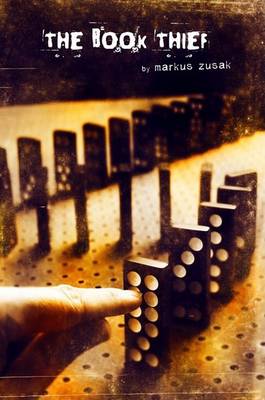Reviewed by clementine on
Well, no, I definitely didn't. The narrative framing was not quite as seamless, and I couldn't help but feel that some of the emotion comes simply out of obligation. Who wouldn't cry at a book about the Holocaust, the devastation of war, the traumas children must bear? It's not that the emotion isn't real, it's that it felt, at times, forced out of me.
There is lots to enjoy here, though. The tenderness of the relationships between Liesel and her foster parents, Liesel and Rudy, Liesel and Max, is genuinely touching. Liesel herself is a great character: damaged and vulnerable but with such a delightful spark. The depiction of childhood feels natural and authentic. The idea of books as unifiers has, of course, been done (meta-literature reinforcing the importance of literature is surely a self-serving theme many have explored), but it has a special significance in the context of Nazi Germany, and especially in the life of a young girl with few means. The everydayness of the characters is a huge strength of the novel: these characters live in Germany, which we know to be "the bad side", but they are just capable of kindness and empathy as everyone else. The war devastates everyone, forcing them to make terrible decisions, to do the best with what they have. Part of me wished that this novel had been slightly less apolitical (for example, the Hubermanns taking in Max is framed as simply an accident rather than a decision borne of a developed political consciousness), but I guess it's not that sort of story. I just have a fierce desire for literature that takes a strong political stand, especially in this nightmarish day and age.
So - I still like this book, but at nearly twenty-five I'm more clearly able to see its pretensions and considerable triteness even while enjoying certain aspects of it. It's hard for me to rate it accurately because I do have such an attachment to it from several teenage years in which I referred to it as my favourite book.
Reading updates
- Started reading
- 22 May, 2019: Finished reading
- 22 May, 2019: Reviewed
